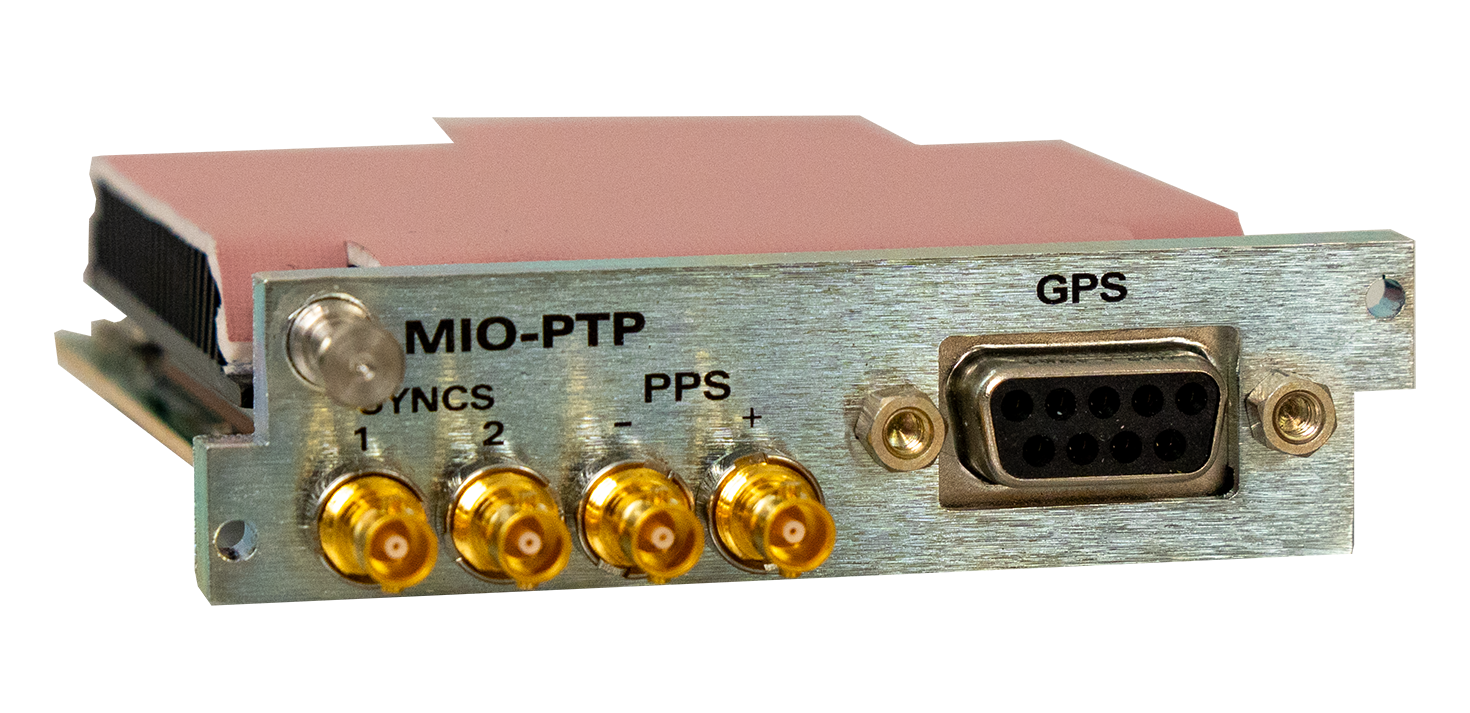Evertz to Focus on Software Defined Video Networking at IBC 2024
Company’s SDVN solution targets media companies moving to IP or expanding all-IP infrastructures using SMPTE ST 2110 and NMOS.

BURLINGTON, Canada—Evertz will show the latest updates to its Software Defined Video Networking solution at the 2024 IBC Show at the RAI Amsterdam, Sept. 13-17.
Among the new additions are a small form factor network and analog timing module—the MIO-PTP—which is ideally suited to broadcast and telecom networks. MIO-PTP can be deployed in both baseband and IP-based networks to provide timing synchronization a root leader, boundary, or to extend timing over a WAN to locations that do not have a synchronization source (e.g. GPS).
Also on show at IBC 2024 is NATX-LT, a next generation network fabric that offers a cost-effective entry point for both core or aggregation requirements in any media facility or mobile deployment. Fully integrated with Evertz' MAGNUM-OS, NATX-LT switch fabric offers flexible, format agnostic and scalable infrastructure options, allowing seamless routing for SMPTE ST 2110 and other media standards with standard SFP or QSFP Interfaces, Evertz said.
In addition to NATX-LT, Evertz is introducing its new PREFEX Media Processing Edge (MPE). The company says the ultra-high-density platform offers the industry’s highest encapsulation IP gateway, along with the video processing features that are commonly required when transitioning from SDI to ST 2110. This fully featured MPE has the power and flexibility to handle tasks such as frame sync, up/down/cross conversion, and audio shuffling – all in a compact 1RU package.
For bulk signal processing and conversion, Evertz will be releasing the new up/down/cross conversion app for the ev670-X30-HW-V2. This app will feature up/down/cross conversion (up to UHD), interlace support, HDR conversion using LUT (selectable), video processing, video and audio delay adjustments, and audio grooming (4x4, 2x8, and 1x16 combinations).
Evertz will also be showing new features and advanced tools for MAGNUM-OS, a comprehensive orchestration, monitoring and analytics platform for SDI, IP, or hybrid facilities. Positioned at the heart of Evertz’ SDVN solution, MAGNUM-OS simplifies workflows, reduces operational costs, and increases efficiency by allowing broadcasters to connect facilities, resources, and devices together within a city, country or globally, according to the company. MAGNUM-OS also supports hybrid workflows where devices or resources are located on premise or in cloud (public or private).
Among the many critical features that MAGNUM-OS offers is support for third party devices over NMOS and direct APIs. This allows MAGNUM-OS to discover and register third party devices using IS-04 and move flows between devices using IS-05 as connection management. MAGNUM-OS also provides control of network switches that include (but not limited to) Evertz EXE and NATX, Cisco, Arista, and cloud-based swxtch.io. It manages the link bandwidth between the discovered edge devices and the network switches to ensure reliable switching of ST 2110 flows.
In addition to advanced control and orchestration, MAGNUM-OS provides comprehensive monitoring and real-time analytics. MAGNUM-OS includes tools that include PTP traffic and network monitoring and IP-flow tracking over the IP networks for unprecedented visibility in the broadcast media industry, within and between facilities. For IBC 2024, Evertz will be introducing an updated AI/ML log anomaly detection features called LogSNAP, which builds on the real-time analytics in MAGNUM-OS to perform detection based on learned model to identify root causes for issues based on logs.
Evertz will be in Stand 2.B51 at the show. For more information, visit https://show.ibc.org/.
Get the TV Tech Newsletter
The professional video industry's #1 source for news, trends and product and tech information. Sign up below.
Tom has covered the broadcast technology market for the past 25 years, including three years handling member communications for the National Association of Broadcasters followed by a year as editor of Video Technology News and DTV Business executive newsletters for Phillips Publishing. In 1999 he launched digitalbroadcasting.com for internet B2B portal Verticalnet. He is also a charter member of the CTA's Academy of Digital TV Pioneers. Since 2001, he has been editor-in-chief of TV Tech (www.tvtech.com), the leading source of news and information on broadcast and related media technology and is a frequent contributor and moderator to the brand’s Tech Leadership events.

